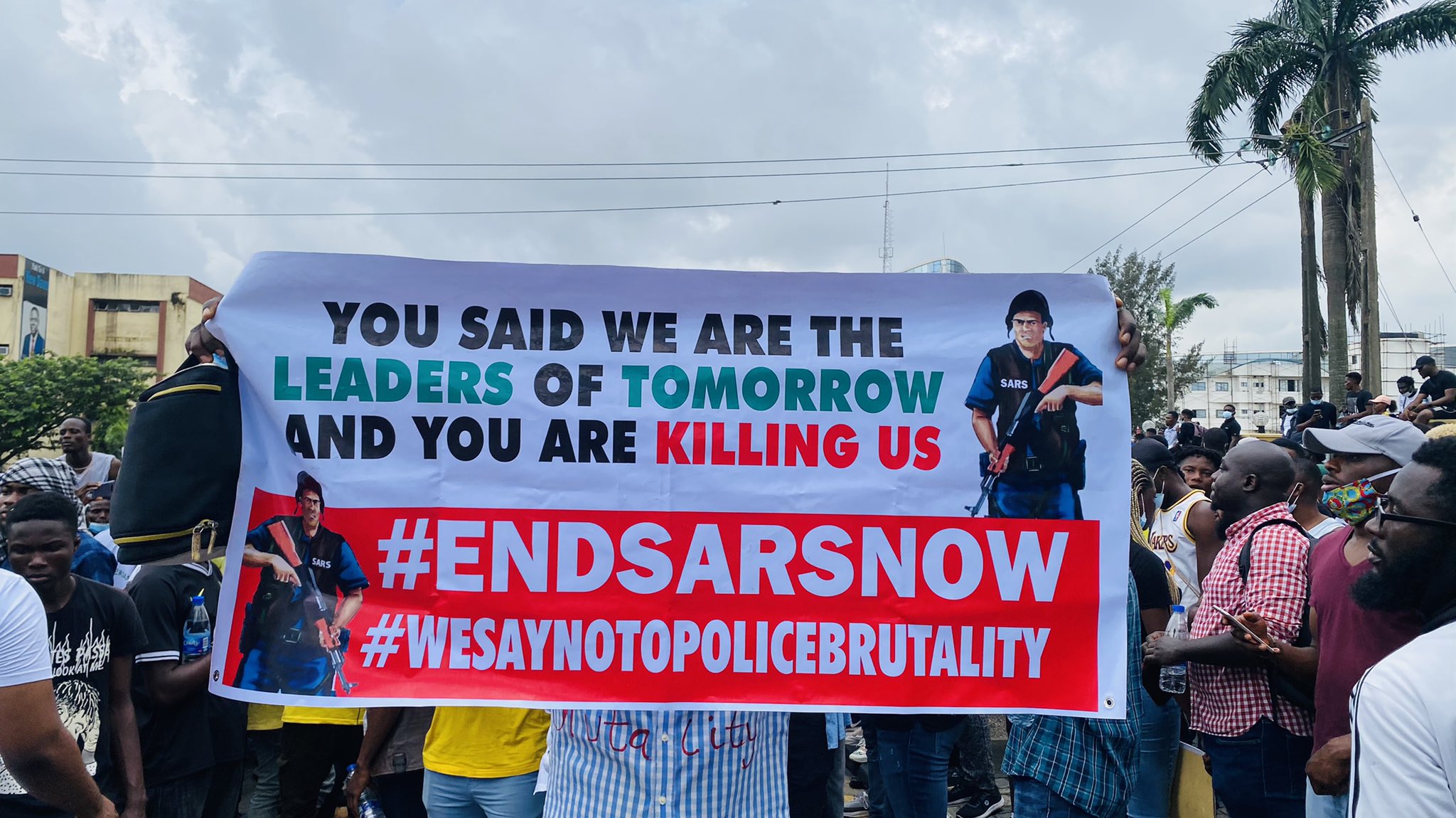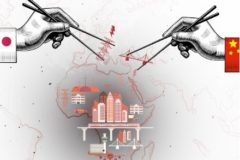Police officers are supposed to secure lives and properties. But Nigerians have flooded the streets this week demanding the complete shutdown of a particularly unruly unit that remains a sustained threat to their lives.
This is not a new story.
Over the past year and half, TechCabal has reported on multiple instances where the Special Anti-Robbery Squad (SARS) of the Nigeria Police Force has kidnapped, robbed and/or maimed citizens on trumped up charges.
Countless experiences suggest SARS still operates like a rogue, extortionate task force than a law enforcement unit.
Dressed in mufti, they drive around streets in questionably unmarked vans. They accuse would-be victims of being criminals either because such young people are carrying laptops or phones, or for their physical appearance.
Yele Badamosi knows all about this. He runs a venture capital firm that has invested more than $200,000 in 14 early-stage African companies (most are Nigerian).
But when he was stopped by SARS officers on a fateful October evening in 2019 when he was barely two minutes from his home, none of that mattered.
“They took my phones, wallet, house key, my Apple Watch, didn’t care about my ID cards and claimed I was a Yahoo Boy because I had messages on telegram with foreigners,” Badamosi said in a Twitter thread detailing his ordeal.
“They demanded ₦1m from me, made a “fake” phone call to their commander, and said I would sleep in prison.”
“They forced me to open my US bank accounts and said I should transfer USD from my Bank of America account to my GTB. I cried and prayed because I didn’t know what to do and couldn’t understand why and how this was happening. It was one of the scariest experiences of my life.”
Badamosi’s terrifying experience has a wider implication for young people who depend on mobile devices and fintech apps for daily transactions. A SARS officer could easily assume you are up to mischief when they see such apps on a phone, or chats with foreigners on your WhatsApp.
To be safe, some people say they delete their work and finance apps when they approach Police checkpoints.
SARS has supposedly been reformed within the past year after previous outrage and street demonstrations. There’s been a number of dialogue sessions between civil society organisations and the Police.
But SARS has not changed. The public still holds them in dread as mortal threats.
So we have a fresh outbreak of protests, in more Nigerian cities than in previous years. This time, popular musicians have joined the cause on the streets, notably Folarin ‘Falz’ Falana, Tiwa Savage, and Douglas ‘Runtown’ Agu.
Overnight demonstrations at the Police head offices and legislative buildings have been supported by citizens mobilizing funds to feed themselves. A fund has been raised for a woman shot in the face during protests on Thursday by a Police officer.
The demand this time is not for reform. “END SARS Immediately” is the rallying cry. The echo appears to be catching attention in some of the places it is targeted towards.
Akin Alabi, a federal legislator in the Nigerian House of Representatives said on the floor of the House on Thursday morning:
“The average Nigerian is more afraid of the Police officer that he is of armed robbers.”
Alabi should know. Before becoming an elected official, he made his name as the CEO of NairaBet, one of Africa’s biggest indigenous sports betting companies. Young people are the lifeblood of that sector, and all other businesses that are mobile-first.
At the Lagos state House of Assembly, Desmond Elliot, an actor turned politician, said on Friday:
“The Inspector General of Police must seriously consider [that] they are working for the people. If the unit you set up is not working for the people, and the people are calling for it to be disbanded then let us do what they are saying.”
Elliot captures the essence of the protest in this statement, just stopping short of outrightly recommending the SARS be abolished. But will his contribution count for much?
Earlier on Friday, Frank Mba, the Public Relations Officer of the Nigeria Police, doubted the motives of some of the #EndSARS campaigns while speaking on TV.
It may have been a well-intentioned way of suggesting the need for retaining a visible anti-robbery operation to stay vigilant against crime in the society. But it was received as impersonal, lacking empathy and perhaps a sign there isn’t a real appetite at the decision making branch of the Nigeria Police to effect real change.
Among other things, Mba said the federal government has spent too much money on SARS to ban it. President Muhammadu Buhari has made no notable statement on either the SARS menace or the ongoing protests.
What to do with all this? Citizens and tech founders say they will persist with the protests.





















